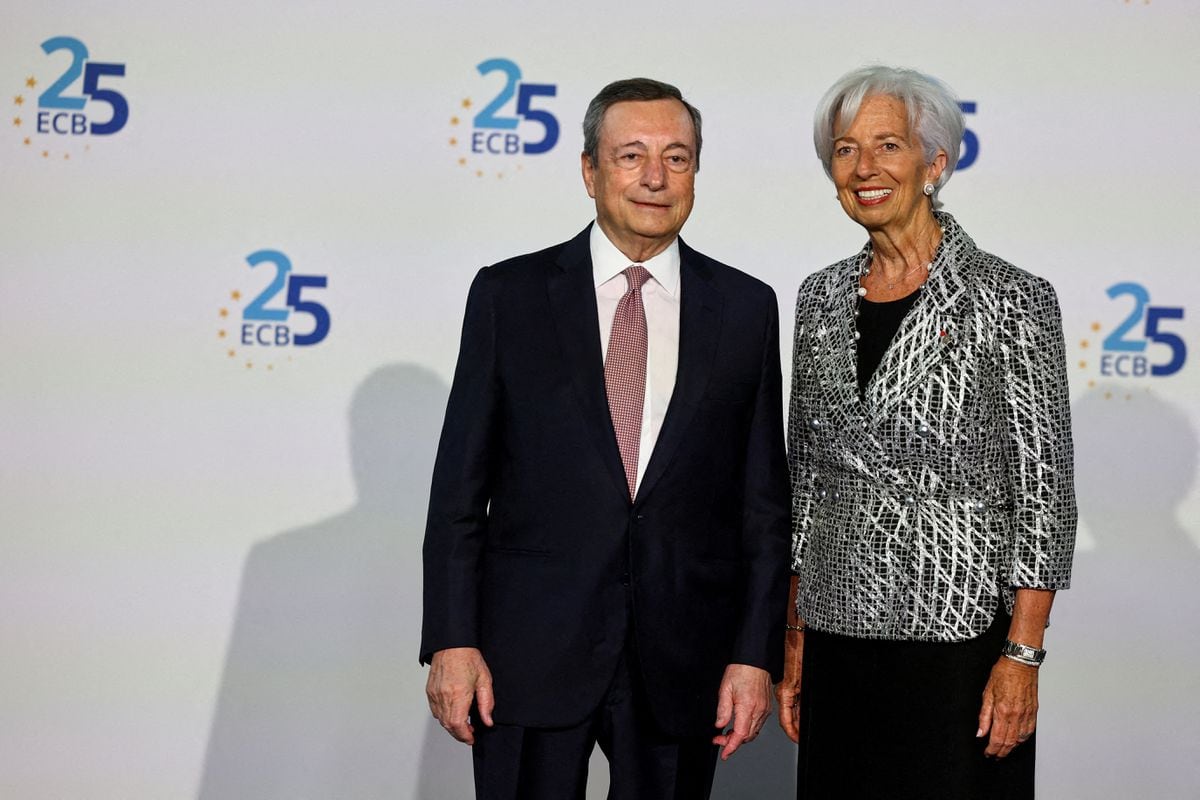The European Commission has already designed a proposal to reform the new European fiscal rules.
And these will be much more like a suit tailored to each partner than a corset that everyone must enter, regardless of the circumstances.
In the proposal, which will be released next week, the Community Executive will propose designing together with the affected countries four-year fiscal plans, which can be extended up to seven if reforms and investments are assumed.
According to several community sources, Brussels will also raise limits on national spending (that is, without counting on community funds) or impose lower penalties than the current ones —which end up not being paid— but which will have a reputational cost in the markets, with the consequent punishment that this entails for risk premiums.
The communication that the Community Executive will put on the table on Wednesday will open a long debate between the Commission and the Member States.
For this discussion, several capitals have already been taking positions and a clear line can be drawn between the claims of the Netherlands, Germany and other States traditionally more in favor of fiscal discipline and others such as France, Italy or Spain, where there is great concern for that matter because of the large amount of public debt they accumulate.
The arrival of the pandemic occurred when many countries —including Spain— were still trying to recover from the blow of the financial crisis, and that triggered public debt.
The ERTE, the direct aid to companies or basic income required huge volumes of money and the collection sank before the stoppage of the activity.
Lowering the mountain of debt (94.2% of GDP in the euro zone as a whole) has become a challenge that, with the current rules, threatens to lead the most indebted states into a deep recession.
Hence, the Commission warned, since it took up the idea of revising the rules a year ago, that it was also about seeking a "credible" regulation.
Both from the ideas already outlined in public by community leaders —such as the Commissioner for the Economy, Paolo Gentiloni— and from the details that will be known on Wednesday, it can be deduced that making the current rules "credible" involves reforming the fiscal correction mechanisms that already exist.
Neither Gentiloni nor the Vice President of the Commission Valdis Dombrovskis are going to put on the table changes in the two main pillars of the Stability and Growth Pact: the annual public deficit must not exceed 3% and the debt must be below 60% .
Instead, they will propose a new way to reduce liabilities for countries that exceed this last limit (with the data for the second half of the year, the entire euro zone except the Netherlands, the three Baltic republics and Ireland).
Now,
seven-year extension
The mechanism proposed by the Commission —inspired by the operation of the Recovery Fund— consists of a partial debt adjustment plan with credible medium-term objectives (in the long term there will always be that horizon of 60%) that will be negotiated between the affected State and the Community Executive, and must be sanctioned by the Council of the EU.
In principle, this plan would last four years, but if the country involved commits to reforms and obligations it can be extended up to seven years, always according to the same European sources.
This prolongation is something to which Brussels attaches great importance, since it involves the involvement of national governments and seeks to escape from the feeling of more technocratic than democratic
diktat
that was imposed during the euro crisis.
The pact also has a rule that will limit the public spending that can be financed with each State's own resources, that is, excluding community funds.
However, in the investment chapter, items that were destined to the objectives that the European Union has indicated as preferential could be left out: ecological transition, digital revolution and defense.
This is spending that can increase the potential growth of countries.
Despite the fact that community sources admit that this argument is not entirely applicable to Defense, they do recall that this spending is among the priorities of the Twenty-seven.
Another chapter in which Brussels proposes changes concerns sanctions.
These will be smaller, although they are intended to carry a reputational blow.
It remains to be seen whether this reduction will convince the States to accept the fines.
The resistance has been such that, until now, no penalty has ever been imposed for non-compliance with the fiscal rules, despite the fact that files have been opened, as was the case in Italy in 2018.
In the Commission's proposal, the Community Executive assumes the vigilance that the agreement is fulfilled.
This can be a point of friction with the so-called frugal countries (the Netherlands, Germany, Austria, Finland).
The Hague and Berlin have defended in two separate writings in recent months that independent bodies and, in theory, more supporters of fiscal orthodoxy, have a greater role in controlling the entire process.
The governments of these countries are wary of giving Brussels more room to apply the rules.
They are aware that the strict application of the current ones —although suspended after the pandemic— would lead to a deep recession in many Member States, which is why they accept the review.
Nevertheless,
Spain, which signed a very ambiguous document with the Netherlands, has reason to feel satisfied, since it reflects its desire that the same debt reduction rule not be imposed for all, regardless of their starting point.
France and Italy also have reasons to feel relatively identified in the document that Brussels is finalizing, since it opens the possibility that investment in items such as the digital transition or defense are not contemplated in the spending rule.
Madrid also demanded that green spending
not be considered
.
Subscribe to continue reading
read without limits
Keep reading
I'm already a subscriber


/cloudfront-eu-central-1.images.arcpublishing.com/prisa/BSW76ADTMZBGXEN5B5THLU2R7M.jpg)



/cloudfront-eu-central-1.images.arcpublishing.com/prisa/V7VWQYKVFVAJDPG3TQOP75Y74M.jpg)

/cloudfront-eu-central-1.images.arcpublishing.com/prisa/RLVRE36BJ333YNEQ2LG6XMIQSY.jpg)






